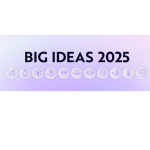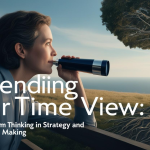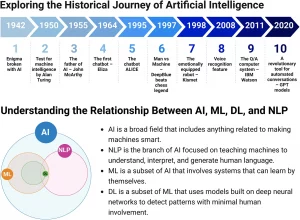I. Introduction: The Urgency of Taking Back Our Agency
In the contemporary world, individuals often find themselves immersed in an incessant flow of information and overwhelmed by events that seem beyond their control. Whether it’s geopolitical dynamics, economic fluctuations or the unpredictable actions of others, the feeling of helplessness can easily creep into daily life, generating anxiety and stress. Faced with this complexity, a fundamental concept emerges as a powerful antidote: agency. Defined as our inherent ability to influence our lives and the course of events through our actions, agency represents a crucial tool for counteracting feelings of overwhelm. “Let’s take back our agency” is not just a slogan, but an active invitation to recognize and cultivate our power to act. This article aims to explore how, although it is impossible to control every aspect of reality, focusing our energies on what is actually under our dominion – our agency – is essential to reduce stress, improve psychological well-being and achieve our goals.
II. What Exactly Is Agency? A Look Through Psychology and Sociology
To fully understand the meaning of agency, it is useful to analyze it through the lenses of psychology and sociology. From a psychological perspective, agency refers to a person’s ability to initiate and control their own actions, accompanied by a sense of being responsible for those actions.1 It goes beyond simple motor control, also including awareness of what can be achieved and a sense of responsibility for one’s choices.2 Albert Bandura’s cognitive-social theory offers an illuminating perspective on human agency, identifying four fundamental functions through which it manifests itself: intentionality, which involves the formation of action plans to achieve objectives; foresight, or the ability to set goals and anticipate the probable consequences of future actions to guide and motivate efforts; self-reactivity (or self-regulation), which refers to the ability to motivate and regulate the execution of action plans; and self-reflexivity (or self-efficacy), which concerns the ability to reflect on one’s own abilities, on the validity of one’s thoughts and actions, and to make any corrections.4 Bandura also distinguishes three modes of agency: individual agency, in which people directly exert influence on their own actions and the environment; that by proxy, in which others are influenced to act on their own behalf; and the collective one, in which a group of people collaborate to achieve a common goal.5
In sociology, agency is defined as the ability of individuals to have the power and resources to realize their potential, acting independently and making decisions that shape their lives and surrounding social structures.10 Sociology often contrasts agency with social structure, understood as the set of influencing factors (such as social class, religion, gender, ethnicity, habits) that can determine or limit individuals’ decisions.10 There is ongoing debate about the degree to which social structures constrain individual agency. Different forms of agency are also recognized in sociology, including individual, proxy and collective.11 In summary, both psychology and sociology agree in considering agency as the ability to act and exert influence, both on one’s individual life and within a broader social context. The psychological perspective tends to focus on the internal cognitive processes that underlie agency, while the sociological one highlights the interaction between individual action and broader social dynamics, offering a more complete vision of the concept. In particular, Bandura’s model with its four components offers a useful framework for understanding the constituent elements of individual agency that can be actively developed.
III. The Inner Compass: Understanding the Locus of Control
A concept closely related to agency is that of “locus of control”, originally introduced by Julian Rotter. It refers to the extent to which an individual believes that events in their life are primarily the result of their own actions (internal locus of control) or of forces outside their control, such as fate, luck, or the influence of others (external locus of control).16 People with an internal locus of control tend to believe that they can influence events and outcomes through their own efforts and decisions. They feel responsible for both successes and failures and show greater proactivity in life.16 This trend is often associated with greater self-efficacy, healthier behaviors, lower stress levels, and greater academic and professional success.16 In contrast, individuals with an external locus of control tend to believe that external forces have a greater influence on their lives. They often attribute events to luck or fate and may feel less capable of changing their circumstances.16 This perspective can sometimes lead to feelings of helplessness and increased levels of anxiety and depression.20
It is important to underline that the locus of control is not a binary characteristic, but is located on a continuum.16 Most people fall somewhere between the two extremes. The relevance of the locus of control to agency is evident: an internal locus of control is closely linked to a stronger sense of personal agency. Believing you have control over your life encourages you to take action and exercise your ability to influence events.16 However, it is essential to consider that an excessively internal locus of control, not supported by real skills and opportunities, can lead to negative outcomes such as neurosis and anxiety. This highlights the importance of a realistic assessment of one’s sphere of control.16 An encouraging aspect is that locus of control is not necessarily a fixed personality trait, but can be influenced by experiences and even parenting style.16 This suggests that it is possible to shift one’s locus of control towards a more internal orientation, thus strengthening one’s sense of agency.
IV. The Limits of Control: Navigating the Illusion
In parallel with understanding what we can control, it is crucial to recognize the limits of our control and navigate the psychological phenomenon known as the “illusion of control.” This manifests itself as the tendency to overestimate the influence that our behavior has on uncontrollable outcomes.23 Common examples include wearing a lucky charm for your sports team’s victory or feeling like you have some influence on the outcome of a game of chance.25 Although this illusion can sometimes provide a temporary sense of security, it can also have negative consequences, such as engaging in risky behaviors (e.g., pathological gambling) or investing energy in ineffective actions.26 It therefore becomes essential to develop awareness of the limits of our control and clearly distinguish between what we can and cannot influence.27 Stoic philosophy, with its concept of “circles of influence” (control, influence, and concern), offers a useful framework for this distinction.29 The circle of control includes the aspects of our lives over which we have direct control, such as our thoughts, actions, and reactions. The circle of influence includes areas where we can have some influence, but not total control, such as the opinions of others. Finally, the circle of concern includes all aspects that interest us but over which we have no control, such as global events. Recognizing what is beyond our control can reduce unnecessary worries and free up mental energy to focus on what really matters.29 The illusion of control may be fueled by the need for self-esteem and the desire to avoid the negative emotions associated with the perception of uncontrollability.24 Although in some situations, especially when faced with genuinely uncontrollable negative events, this illusion can offer temporary relief, long-term dependence on it can be harmful.22
V. Where to Invest Our Energy: Focus on the Controllable
Behavioral science highlights the importance of understanding the factors that influence human behavior to design environments and interventions that help people make better decisions.30 Focusing our attention on what we can control is closely linked to the efficient management of our resources, especially time and energy.35 The concept of self-control as a limited resource (although it is a debated topic and revised models have been proposed) 36 reinforces the idea that we need to be strategic about where to direct our self-control efforts. There are several practical strategies for identifying and focusing on the controllable aspects of our lives. A useful exercise is the “circles of control, influence and concern”.29 This helps visualize where we are actually investing our energy. It is essential to prioritize actions that are aligned with our goals and values and that are within our reach. An effective approach is to break down large, seemingly uncontrollable problems into smaller, manageable steps that we can act on. Mindfulness can also be a valuable tool, helping to increase awareness of our internal states (thoughts, feelings), which are intrinsically under our control. Behavioral science offers practical tools such as “nudges” and choice architecture, which can be applied to personal lives to help us make choices that align with our goals within our sphere of control.30 Furthermore, the concept of “resource control strategies” suggests that focusing on controllable behaviors (both direct and indirect, pro-social and assertive) can lead to better outcomes in various aspects of life.35
YOU. The Wellbeing Connection: How Focusing on Agency Reduces Stress
The feeling of lack of control is one of the main causes of stress.40 On the contrary, regaining control over what we can influence directly counteracts this feeling of helplessness and reduces stress.40 As mentioned above, there is a significant link between an internal locus of control and better stress management mechanisms.20 Focusing on controllable actions aligns with several established strategies for stress reduction. Solving problems that are within our sphere of control can eliminate sources of stress.41 Effective time management, organizing and prioritizing tasks (controllable actions), can reduce feelings of overwhelm.41 Adopting healthy habits, such as exercise, a balanced diet and adequate sleep (controllable behaviors), has a significant impact on physical and mental well-being and reduces stress.40 Learning to set boundaries and say “no” to over-commitments (a controllable action) prevents overload and stress.41 Finally, the ability to regulate our reactions to uncontrollable events (a controllable internal process) is fundamental to stress resilience.44 The “4 A’s” of stress management (Avoid, Alter, Adapt, Accept) provide a practical framework for addressing stressors by focusing on what can be controlled (avoid, alter, adapt) and accepting what cannot.41 The very act of taking control, even in small things, can be intrinsically empowering and contribute to a sense of well-being, even if the final outcome is not completely in our hands.40
VII. Stories of Strength: Resilience Through the Lens of Agency
Resilience is the ability to bounce back from adversity with flexibility and strength, maintaining well-being despite challenges.44 Resilient individuals and groups often demonstrate a strong focus on what they can control in difficult situations.44 For example, let’s consider a person facing a chronic illness: their agency manifests itself in managing symptoms, adopting healthy habits and seeking support.49 An entrepreneur whose business fails can demonstrate resilience by focusing on learning from mistakes, adapting their approach, and trying again.53 When faced with a personal tragedy, resilience is expressed in managing one’s emotional responses, seeking support, and finding new meaning in life.50 Even those living with a physical disability can exercise their agency by focusing on their abilities and finding creative ways to overcome obstacles.51 At the collective level, a community that organizes to defend its rights or address a social injustice demonstrates collective agency.13 A group of people coming together to support each other after a disaster, focusing on rebuilding and helping each other, is another example.48 Students who take initiative in their learning, advocate for their own needs, or promote positive change in their school community also demonstrate agency.58 These stories highlight some common themes: focusing on controllable actions and responses, maintaining a positive attitude and sense of hope, finding and using support systems, adopting a problem-solving approach, and the ability to learn and grow from challenges. The numerous testimonies available demonstrate how resilience, through focusing on what you can control, manifests itself in various contexts, offering powerful and easily identifiable examples for readers.49 Although the concept of “agency problem” often refers to conflicts of interest in the business world 63, stories of individuals and groups overcoming adversity show a positive form of agency: individuals acting in their own self-interest and collectively for the common good, even in the face of significant obstacles.15
VIII. Taking Matters into Your Hands: Practical Steps to Strengthen Your Agency
To strengthen your sense of agency, you can take some practical steps. First, it’s helpful to identify your circles of control, influence, and worry and regularly evaluate where you’re directing your energy. It is essential to set realistic and achievable goals, focusing on those that are actually within your reach. When faced with challenges, it’s helpful to take a problem-solving approach, breaking down obstacles into smaller, more manageable steps. Cultivating an internal locus of control, recognizing the impact of your actions and taking responsibility for your choices, is another crucial step. Developing self-awareness, understanding our thoughts, feelings and reactions, is essential, as these are things we can control. The practice of self-care should not be neglected, prioritizing one’s physical and mental well-being through controllable habits. Learning to ask for support when needed and to set healthy boundaries, saying “no” when appropriate, protects your time and energy. Finally, it is important to remember that, even if we cannot control external events, we can always control our reaction to them, adopting a growth mindset that pushes us to believe in our ability to learn and adapt.
IX. Conclusion: Embracing Empowerment in a World of Uncertainty
Life is inherently uncertain, and recognizing this reality is the first step towards more effective management of our energies. In this context, focusing on our agency proves to be a powerful strategy for cultivating a sense of empowerment and resilience. Reclaiming our agency means recognizing our power to act, even in the face of difficult circumstances. It means consciously choosing where to invest our time and energy, focusing on what we can influence and accepting what is beyond our control. This approach not only reduces stress and improves psychological well-being, but also allows us to face life’s challenges with greater confidence and determination. So let’s embrace our agency, take matters into our own hands and cultivate our potential for growth and well-being in this ever-changing world.
Table: Internal Locus of Control vs. External
| Characteristics | Locus of Control Interno | External Locus of Control |
| Belief about the causes of events | Mainly due to one’s own actions and abilities. | Mainly due to external factors (destiny, luck, others). |
| Accountability for successes and failures | They feel responsible for both. | They tend to attribute successes to luck and failures to external factors. |
| Proactivity | They tend to be more proactive and take initiative. | They may feel less capable of influencing events. |
| Self-efficacy | Generally higher. | Generally lower. |
| Healthy behaviors | More likely to adopt healthy behaviors (e.g. exercise, diet). | Less likely to adopt healthy behaviors. |
| Stress levels | Generally lower. | Generally higher. |
| Academic and professional success | Often associated with greater success. | May be associated with poorer outcomes. |
| Feelings in difficult situations | Feeling of control and ability to influence the outcome. | Feeling of helplessness and of being at the mercy of events. |
| Potential disadvantages (if excessively internal) | Neurosis, anxiety (if not supported by skills and opportunities). | Dependence on others, fatalism. |
| Influencing factors | Successful experiences, sense of responsibility, encouragement of independence. | Experiences of failure, feelings of helplessness, overprotective or neglectful parenting styles. |









